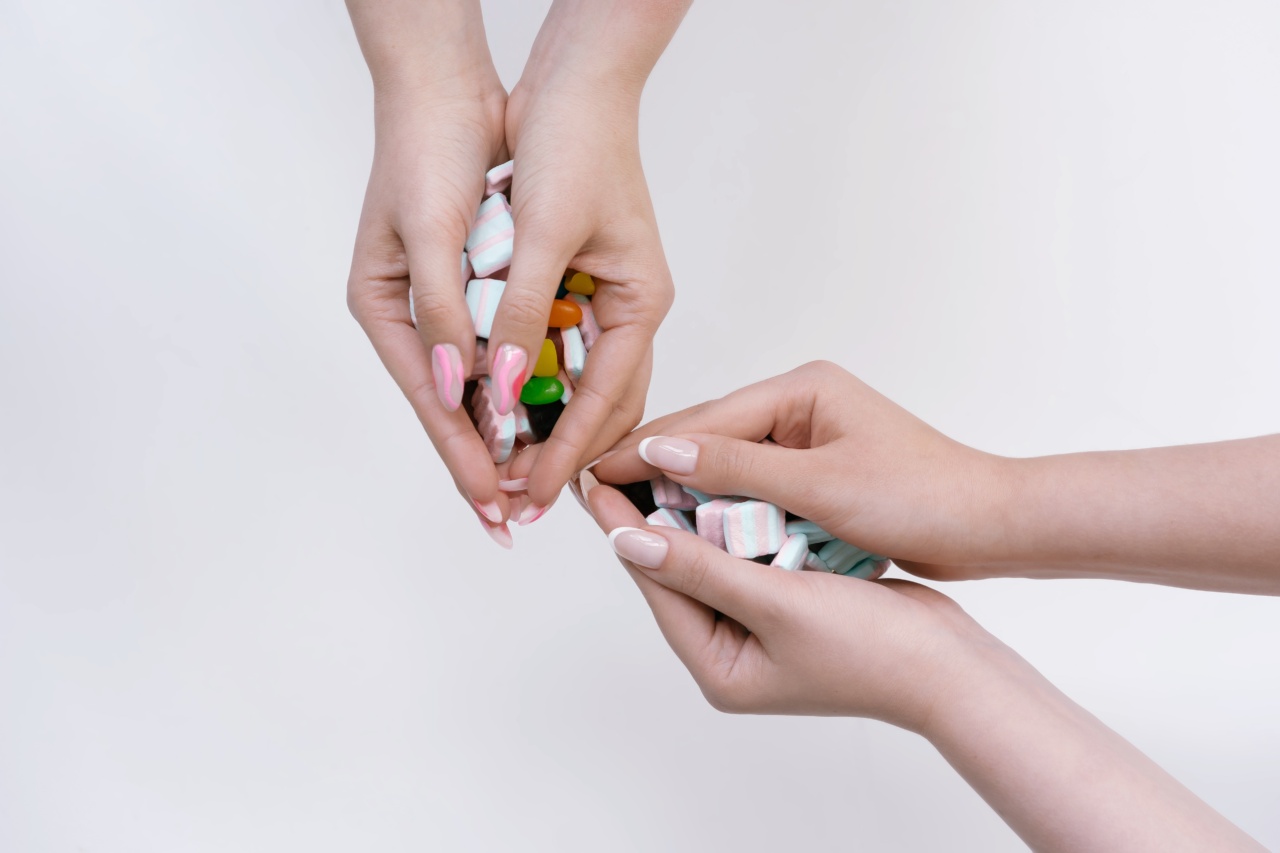Sugar is a common ingredient found in many of the foods and beverages we consume on a daily basis. From desserts to sodas, sugar is ubiquitous and often difficult to avoid.
While we are aware of its negative effects on our overall health, we often overlook the impact it can have on our skin. In this article, we will explore how sugar affects your skin and why it is important to be mindful of your sugar intake to maintain healthy and radiant skin.
The Link between Sugar and Inflammation
Consuming excessive amounts of sugar can lead to a process called glycation, where sugar molecules attach themselves to proteins and form harmful compounds in the body known as advanced glycation end products (AGEs).
Research suggests that AGEs can contribute to chronic inflammation in the body, which can manifest as various skin conditions.
Skin inflammations such as acne, eczema, and rosacea are often triggered by inflammation. The consumption of sugar-rich foods can exacerbate these skin conditions by promoting inflammation within the body.
In addition, excessive sugar intake may also worsen existing skin conditions, increase the severity of breakouts, and delay the healing process.
Sugar and Acne
Acne is a common and frustrating skin condition that affects millions of people worldwide. While it is commonly associated with hormonal changes, diet and lifestyle choices can significantly impact its development and severity.
Sugar, specifically high-glycemic index foods, can trigger acne breakouts.
High-glycemic index foods, such as refined carbohydrates and sugary snacks, cause a rapid spike in blood sugar levels. This triggers a cascade of hormonal responses in the body, including the release of insulin and insulin-like growth factor 1 (IGF-1).
Increased levels of these hormones can lead to the production of excess sebum, a key contributor to acne formation.
Furthermore, diets high in sugar and refined carbohydrates may disrupt the delicate balance of beneficial bacteria in the gut. This imbalance, known as dysbiosis, can result in systemic inflammation and skin issues, including acne.
Sugar and Skin Aging
Aside from its impacts on acne and inflammation, sugar can also hasten the aging process by causing a reaction called collagen glycation. Collagen is a protein responsible for maintaining the elasticity and firmness of the skin.
When sugar molecules attach themselves to collagen fibers, they can make them stiff and less flexible, leading to the formation of wrinkles and sagging skin.
Additionally, glycation can impair the body’s natural antioxidant defense system, making the skin more vulnerable to oxidative stress and damage from environmental factors.
This can accelerate signs of aging, such as fine lines, wrinkles, and age spots.
The Impact of Sugar on Skin Health
Consuming excessive amounts of sugar not only impacts the appearance of the skin but also compromises its overall health.
Sugar can weaken the immune system and impair its ability to fight off bacteria and pathogens that can cause skin infections and breakouts.
Addiction to sugary foods can also disrupt hormonal balance, leading to hormonal acne and other skin-related issues.
Insulin resistance, often caused by a high-sugar diet, can trigger an overproduction of androgens, hormones that play a role in acne formation.
Tips for Reducing Sugar Intake
Reducing sugar intake is crucial for maintaining healthy skin. Here are some tips to help you cut down on your sugar consumption:.
- Avoid processed foods: Processed foods are often high in added sugars. Opt for whole, unprocessed foods whenever possible.
- Read food labels: Pay attention to the ingredient list on food labels. Sugar can hide under various names such as sucrose, fructose, dextrose, and corn syrup.
- Choose natural sweeteners: Instead of refined sugar, opt for natural sweeteners such as honey, maple syrup, or stevia. Remember to use them in moderation.
- Stay hydrated: Drinking an adequate amount of water can help curb sugar cravings.
- Find healthier alternatives: Explore healthier alternatives to satisfy your sweet tooth, such as fresh fruits, dark chocolate with high cocoa content, or homemade treats using natural sweeteners.
- Plan meals in advance: Planning your meals ahead of time can reduce the temptation to reach for sugary snacks or fast food.
- Manage stress: High levels of stress can lead to emotional eating and cravings for sugary foods. Incorporate stress-reducing activities into your routine, such as exercise, meditation, or spending time in nature.
- Seek support: If you struggle with reducing sugar intake, consider seeking support from a nutritionist, dietitian, or support groups.
The Importance of a Balanced Diet
While reducing sugar intake is essential for maintaining healthy skin, it is important to emphasize the importance of a balanced diet.
The body requires a diverse range of nutrients, vitamins, and minerals to function optimally, including for skin health.
Incorporating nutrient-rich foods such as fruits, vegetables, lean proteins, and healthy fats can provide the necessary building blocks for healthy skin.
These foods contain antioxidants, vitamins, and minerals that can combat oxidative stress, promote collagen production, and support overall skin health.
Conclusion
Sugar consumption has a profound impact on the health and appearance of your skin. From promoting inflammation and acne to accelerating the signs of aging, sugar can wreak havoc on your skin if consumed in excess.
By being mindful of your sugar intake, making healthier food choices, and adopting a balanced diet, you can maintain healthy and radiant skin.
Remember, moderation is key, and taking care of your skin goes hand in hand with taking care of your overall health.































